NCEE Quantitative Aptitude Questions And Solutions Pry 5
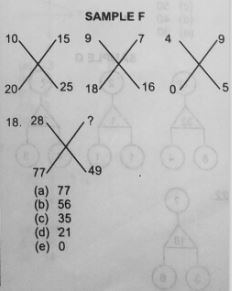
Pupils in primary or basic 5 write the National Common Entrance Examination (NCEE). It is important that your child is well-prepared and passes the exam before proceeding to the secondary school of his/her choice. One of the areas of preparation is quantitative aptitude. I will try as much as possible to lay the foundation to help pupils in primary 5 do well in this section.
Quantitative questions are used to test your skills in numbers. In this context, you must be skillful in the use of addition, multiplication, subtraction, and division of numbers.
For this content, all the sample questions are BECE past questions. So, be rest assured that I won’t go out of the syllabus.
Samples
The series of problems below are based on quantitative reasoning. Before answering the questions, study the sample that precedes each set and use it to solve the problems in that set.
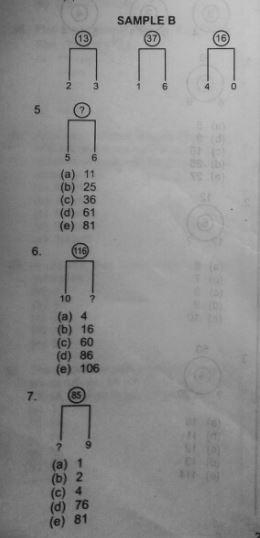
To solve this question, check the sample and think through it without wasting time. The approach to solving it will be given below.
(2^2 + 3^2) = 4 + 9 = 13.
(1^2 + 6^2) = 1 + 36 = 37
(4^2 + 0^2) = 16 + 0 = 16
The results I got are the numbers on the image. You can now use the same concept to solve the questions beneath.
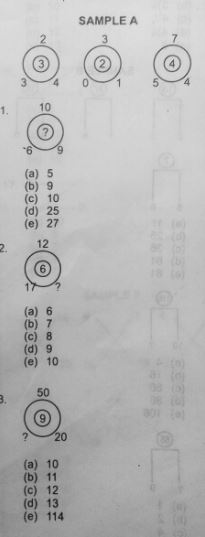
In the above sample, there are two circles. You will add all the numbers on the big circle and square the number on the small circle.
(2+3+4) = (3^2) = 9
(3+0+1) = (2^2) = 4
(7+5+4) = (4^2) = 16

For this question, the differences between the top numbers must be the same with the ones below.
(15-10) = (25-20) = 5
(9-7) = (18-16) = 2
(9-4) = (5-0) = 5
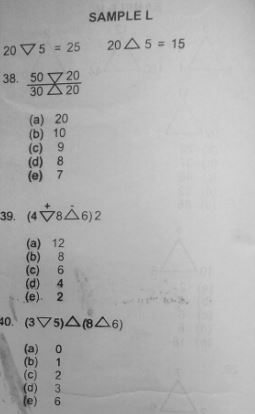
The first sample is addition while the second one is subtraction. Also, check the sign so as to avoid mistake.
For the first question, (50+20)/(30-20) = 70/10 = 10. So, B is the answer.
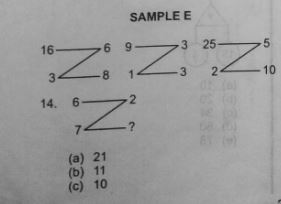
For this question, if you multiply the number on the left side of the “Z” it must be equal to that on the right side.
(16*3) = (6*8) = 48
(9*1) = (3*3) = 9
(25*2) = (10*5) = 50
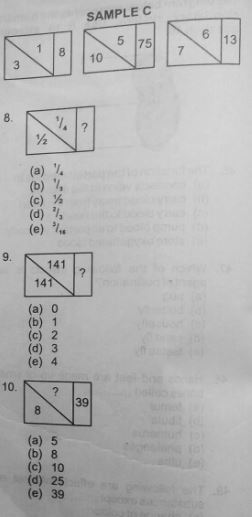
This is the solution
(3^2 – 1^2) = 9 -1 = 8
(10^2 – 5^2) = 100 – 25 = 75
(7^2 – 6^2) = 49 – 36 = 13.
So, if you have any questions you can drop in the comment section.
